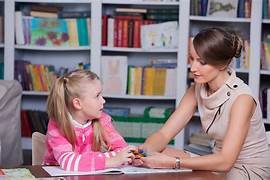Understanding the Importance of Positive Self-Esteem in Childhood Development
In the formative years of childhood, the development of positive self-esteem serves as a critical foundation for emotional well-being, social interactions, and overall personal growth. Positive self-esteem empowers children to develop a healthy sense of self-worth, confidence, and resilience, laying the groundwork for building strong relationships and navigating challenges with a positive mindset. Understanding the vital role of positive self-esteem in childhood development underscores the significance of expert guidance and support from child psychologists in promoting a nurturing and empowering environment for children to flourish.
Impact of Positive Self-Esteem on Childhood Well-being
Positive self-esteem significantly influences various aspects of a child's well-being, including emotional stability, academic performance, and social competence. Children with a healthy sense of self-esteem are more likely to exhibit resilience in the face of adversity, develop strong interpersonal skills, and demonstrate a positive attitude towards learning and personal growth. Recognizing the profound impact of positive self-esteem on childhood well-being highlights the critical role of child psychologists in fostering a supportive and nurturing environment that promotes self-confidence, emotional resilience, and holistic development.
The Role of Child Psychologists in Cultivating Positive Self-Esteem
Child psychologists play a pivotal role in cultivating positive self-esteem in children by providing specialized guidance, support, and evidence-based interventions tailored to the unique needs and developmental stages of each child. By fostering a compassionate and nurturing therapeutic environment, child psychologists empower children to explore their emotions, develop self-awareness, and build the necessary skills and coping mechanisms to enhance their self-esteem and emotional well-being.
Cultivating Emotional Intelligence and Self-Awareness
Child psychologists focus on cultivating emotional intelligence and self-awareness in children, encouraging them to recognize and understand their emotions, express their feelings effectively, and develop a healthy sense of self-identity and self-worth. Through interactive and engaging therapeutic activities, child psychologists create a safe space for children to explore their emotional experiences, develop coping strategies, and build resilience in the face of emotional challenges.
Building Positive Communication and Interpersonal Skills
Promoting positive communication and interpersonal skills is an integral part of the role of child psychologists in cultivating positive self-esteem. By providing children with practical guidance and social skill-building strategies, child psychologists empower children to establish meaningful connections, communicate assertively, and develop healthy relationships based on mutual respect, empathy, and effective communication, thereby fostering a sense of belonging and emotional well-being.
Encouraging Positive Reinforcement and Personal Growth
Encouraging positive reinforcement and fostering a growth mindset is essential for promoting positive self-esteem in children. Child psychologists employ positive reinforcement techniques, motivational strategies, and goal-setting exercises to encourage children to embrace challenges, learn from their experiences, and celebrate their achievements, fostering a sense of confidence, competence, and personal fulfillment in their abilities and accomplishments.
Strategies for Promoting Positive Self-Esteem in Children
Promoting positive self-esteem in children involves the implementation of effective strategies and interventions that focus on nurturing a supportive and empowering environment conducive to emotional growth and personal development. Child psychologists offer valuable insights and advice on a range of strategies that parents, caregivers, and educators can adopt to promote positive self-esteem in children, including:
Encouraging a Positive and Supportive Environment: Creating a positive and supportive environment that fosters open communication, encourages positive affirmations, and celebrates individual strengths and accomplishments is essential for promoting a sense of belonging, acceptance, and emotional well-being in children.
Fostering a Culture of Empathy and Understanding: Fostering a culture of empathy and understanding helps children develop a sense of compassion, empathy, and kindness towards themselves and others, fostering a supportive and inclusive community that values emotional well-being and interpersonal connections.
Promoting Healthy Self-Expression and Creativity: Encouraging children to engage in creative self-expression, explore their interests and passions, and express themselves freely through various artistic and recreational activities promotes a sense of self-discovery, personal empowerment, and emotional fulfillment.
Cultivating Resilience and Coping Skills: Equipping children with effective resilience-building and coping skills enables them to navigate challenges, setbacks, and uncertainties with a positive and proactive mindset, fostering emotional strength, adaptability, and perseverance in the face of adversity.
Conclusion
The transformative impact of promoting positive self-esteem in children is evident in the development of resilient, confident, and emotionally well-adjusted individuals who are equipped to navigate life's challenges with a positive and proactive mindset. Through the guidance and support of child psychologists, children are empowered to cultivate emotional intelligence, build positive communication skills, and develop the necessary resilience and coping mechanisms to thrive in various social and academic environments. Embracing the strategies and interventions recommended by child psychologists is essential for parents, caregivers, and educators seeking to foster a nurturing and empowering environment that promotes the holistic development and emotional well-being of children, laying the foundation for a future generation of confident, compassionate, and resilient individuals. Check out the best speech therapist.





Comments